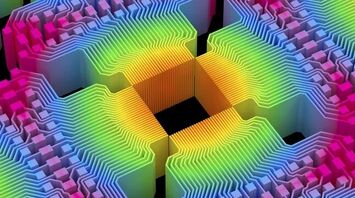What is a Quantum Bit (Qubit)?

Qubits are the essential data units in quantum computing, analogous to binary bits in classical computing. However, unlike binary bits, which store data as either 0 or 1, qubits utilize the principles of quantum mechanics, offering unique behaviors and capabilities. Quantum computers often use subatomic particles like photons or electrons as qubits, leveraging properties such as charge, photonic polarization, or spin to represent data.
Superposition and Parallel Processing
One of the defining features of qubits is their ability to exist in a state of superposition, meaning they can simultaneously occupy both 0 and 1 states. This property allows a quantum computer to handle computations in parallel within exponentially growing possible states, depending on the number of qubits. For instance, while two classical bits can represent four possible combinations (00, 01, 10, 11) individually, two qubits can represent all these combinations simultaneously. This capability marks a substantial leap in potential processing power when compared to classical binary systems.
Quantum Entanglement
Entanglement is another crucial quantum phenomenon that qubits exhibit. When qubits become entangled, the state of one qubit is directly correlated with the state of another, regardless of the distance between them. This entangled state allows for simultaneous interaction, hence enhancing computational speed and capacity by enabling the inference of one qubit's state from its entangled partner. Scientists aim to use indirect methods, such as interactions with the environment, for gaining information about qubits, thus preserving their superposition states for longer durations.
Fragility and Decoherence
Qubits are remarkably sensitive and prone to decoherence — losing their quantum state due to the slightest interaction with the external environment like heat or physical movement. This necessitates maintaining qubits at near absolute zero temperatures and using specialized technology to preserve their coherent state. While classical computing offers long-term and stable data storage, qubits have exceptionally short coherence times, measured in milliseconds or seconds. Notably, the world record for a single qubit’s coherence time is 10 minutes, although this achievement remains unrealistic for operational quantum computers.
Error Correction and Future Prospects
Current quantum computers still grapple with the challenge of error correction. One strategy under investigation is the creation of "logical qubits." These are aggregates of entangled but error-prone qubits that store identical information at multiple points. This distribution of data mitigates the risk of errors during calculations. Should we succeed in stabilizing qubits for practical applications, quantum computers promise to revolutionize computing power by performing tasks—such as breaking complex encryption algorithms—that would be infeasible for today's most powerful classical supercomputers.
Conclusion
While practical, large-scale quantum computing remains a challenge, the unique properties of qubits, including superposition and entanglement, offer immense potential. Overcoming the current limitations of fragility and decoherence is pivotal for achieving quantum computers capable of performing calculations far beyond the reach of conventional computers.
Earlier, SSP wrote that Logitech presented a number of new products.



















